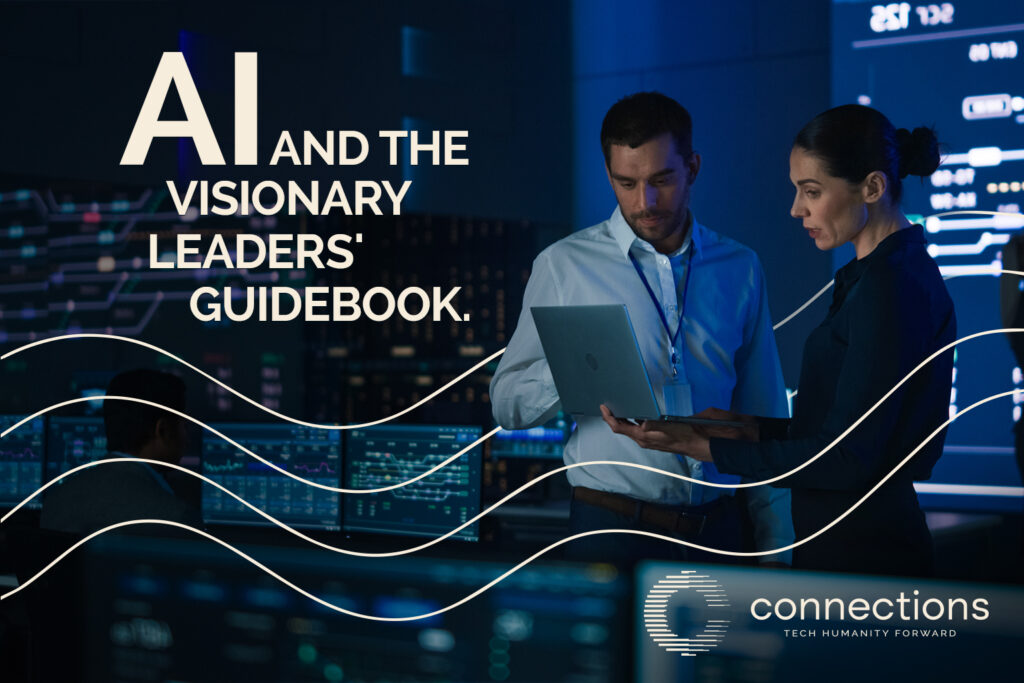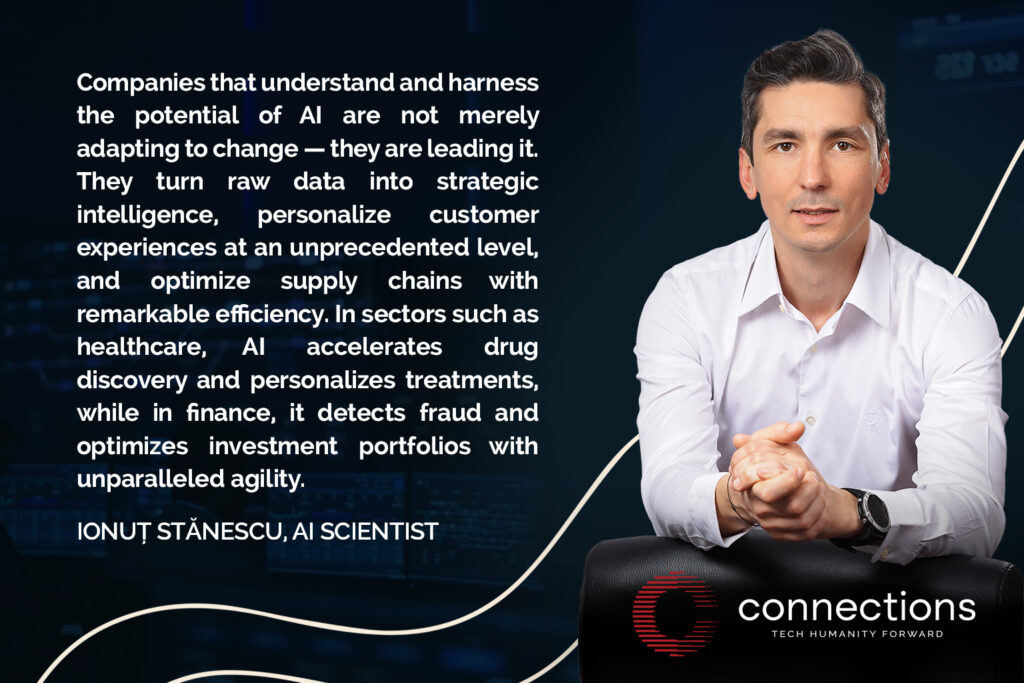
From the boardrooms of global corporations, where decisions are made in split seconds, to the offices of public administrations, where bureaucracy is turning into efficiency, artificial intelligence is making its presence felt—transforming every aspect of our business activities, whether in the private sector or the public domain.
From Pilot Projects to Large-Scale Implementations
In 2024, leaders across all industries faced a fundamental dilemma: how to maintain the balance between the accelerating pace of innovation and the security of established processes. Artificial intelligence was at the epicenter of this transformation, redefining not only operational efficiency but also the very foundation of how companies function.
While AI had previously been used in experimental ways, 2025 will mark the shift toward maturity: from pilot projects to large-scale implementations, with a direct impact on long-term profitability and competitiveness.
A study conducted by the IBM Institute for Business Value and Oxford Economics, surveying 400 global leaders, shows that 63% of executives believe investments in AI will have a significant financial impact over the next two years. Additionally, 85% think AI will reshape business models, and 89% believe it will drive innovation in products and services.
However, only 24% of companies were using AI to generate new revenue streams, with most still stuck in the testing and optimization phase. This gap highlights a huge strategic opportunity for those able to adopt this technology quickly and intelligently.
The cybersecurity industry is one of the first sectors to understand the power of AI. Cyberattacks have become increasingly sophisticated, and traditional protection methods are no longer sufficient. Artificial intelligence algorithms can detect threats invisible to classical security systems by analyzing anomalies in real time and blocking cyberattacks before they cause damage.
Studies show that 70% of IT professionals consider AI essential in protecting networks against increasingly complex attacks. From preventing botnet attacks (a botnet attack is a cyber operation where an attacker controls a network of infected devices—“bots”—to carry out malicious actions such as DDoS attacks, sending spam, or data theft) to behavioral analysis of users for fraud detection, AI is redefining how companies approach digital security.
Another industry profoundly influenced by AI is the legal sector, where traditional processes consume enormous amounts of time and money. Artificial intelligence has transformed the work of lawyers by significantly reducing the time needed to analyze documents, identify legal precedents, and draft contracts. A recent study shows that AI adoption in the legal sector has doubled in just one year, and 92% of professionals confirm that using the technology has allowed them to focus on the strategic aspects of their work, delegating repetitive tasks to intelligent systems.
The financial sector is no exception. AI has become an indispensable tool for automating accounting tasks, preventing fraud, and developing financial strategies based on advanced predictive analytics. Algorithms can process millions of transactions in record time, identifying suspicious patterns and reducing losses caused by illicit activities. Moreover, AI-powered economic forecasting enables companies to make more informed decisions, reducing market uncertainty.
We are witnessing a profound transformation, where algorithms and neural networks not only optimize processes but redefine the very nature of competition. Emerging trends—from generative AI capable of creating innovative content and designs to predictive analytics systems that anticipate market fluctuations with astonishing accuracy—are reshaping fundamental industries.

Companies that understand and harness the potential of AI do not merely adapt to change; they lead it. They transform raw data into strategic intelligence, personalize customer experiences at an unprecedented level, and optimize supply chains with remarkable efficiency. In sectors such as healthcare, AI accelerates drug discovery and personalizes treatments, while in finance, it detects fraud and optimizes investment portfolios with unmatched agility. – Ionuț Stănescu, AI Scientist
However, understanding the opportunities AI presents is not enough, and those who want to lead this transformation must quickly prepare their organizations for adopting this technology. The IT infrastructure of many companies is not ready for the full integration of AI-based solutions, and the shortage of technical skills poses a serious obstacle.
Moreover, AI ethics regulations are becoming a hot topic in boardrooms—54% of leaders surveyed by Deloitte believe that using AI involves greater ethical risks than any other emerging technology. From algorithmic bias (which occurs when a computer program makes biased decisions, favoring or disadvantaging certain groups of people due to incorrect data or the way it was created) to data protection, companies must find a delicate balance between innovation and responsibility.
The real challenge for business leaders is not just implementing AI, but transforming it into a factor of sustainable growth.
In this context, the question is no longer whether AI will reshape businesses, but how prepared companies are to face this revolution. Those who manage to overcome technological and adoption barriers will gain an undeniable competitive advantage. Those with the vision and agility necessary will be the market leaders of tomorrow. The rest will remain trapped in the past.
We recommend that all companies with future outlooks treat the assessment of their readiness to adopt AI-based technologies as a top business priority for 2025.
From the auditing experience of the Connections team, this analysis is absolutely essential and significantly optimizes the implementation process.
In other words: time saved and real ground for leadership.